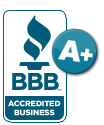There have been many articles written throughout the World Wide Web that promote misinformation about the structured settlement factoring industry and specifically selling the rights to structured settlement payments. This author would like to dismiss these myths and provide a faq for annuitants to refer to when selling the rights to their payments.
Is it illegal to sell the rights to a structured settlement?
No, it's not illegal to sell the rights to a structured settlement. Most states have a Structured Settlement Protection Act which outlines the requirements that need to be met in order to sell future payments. Some of those requirements are as follows:
- The company purchasing structured settlement payments must provide full disclosure about the financial terms of the transaction.
- A hearing is held where a judge decides whether the transaction is in the best interest of the structured settlement recipient. Such factors such as the discount rate of the transaction, reason for selling the payments, and other income sources are taken into consideration before approving such a transaction.
- The judge must issue a court order approving the sale of the transaction.
The list above does not stipulate all of the requirements of a structured settlement factoring transaction.
What happens if the Settlement Agreement has anti-sale or anti-assignment language?
First of all, anti-assignment or anti-sale language means that the annuity payments cannot be sold or transferred.
As mentioned above, most states have a Structured Settlement Protection Act which states that a judge must approve the transfer of such payments. A judge has the power to approve the sale even if anti-assignment language exists in the Settlement Agreement or Annuity Policy.
Can an annuitant sell a portion of their structured settlement payments?
Yes, annuitants have the option to sell all or some of their structured settlement payments. There has been much controversy over this in recent years. Some companies will purchase the rights to a portion of an annuitant's payments, but instead of allowing the insurance company to continue to service the rest of their payments, the funding company will service the payments to the annuitant taking control of future sales of that annuity policy.
Settlement Quotes is currently in the process of finding out more information about this practice.
Is the Lump Sum Payment received from the sale of a structured settlement tax free?
In most cases the lump sum payment received from selling the rights of a structured settlement are tax free. The same tax treatment is applied to the lump sum payment that was given to the previous structured settlement payments. If an annuitant's previous payments were tax free, then the money received from the sale of future payments will be tax free as well.
Section 104(a)(2) of the Internal Revenue Code confirms that damages received for personal injury or sickness are not considered income and are not subject to tax.
In 2002 federal legislation was passed to protect payees in the sale of their structured settlement payments. As a result, Section 5891 was added to the Internal Revenue Code.
Section 5891 requires the sale of structured settlement payments must be approved by a court in accordance with the relevant State statute.
The information provided above is for education purposes only and should not be taken as legal advice.





